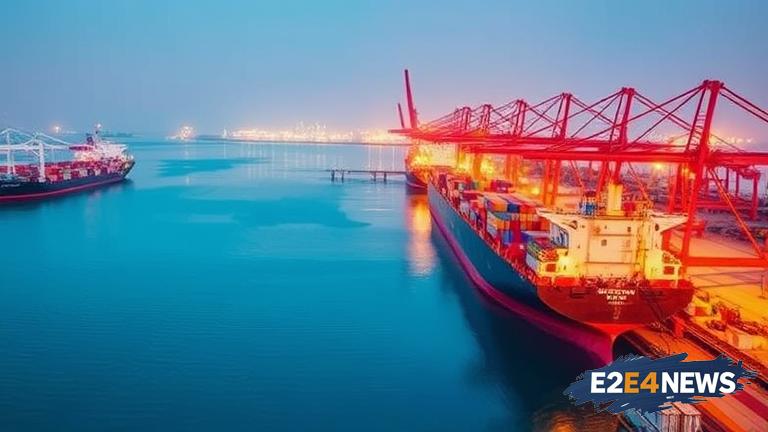The Chittagong Port, one of the busiest ports in Bangladesh, is in dire need of modernization to increase its efficiency and competitiveness. A foreign adviser has emphasized the importance of bringing in a global operator and foreign technology to achieve this goal. The port’s current infrastructure and management systems are outdated, leading to congestion and delays, which are hindering the country’s economic growth. The adviser suggested that a global operator with expertise in port management could help streamline operations and improve productivity. Additionally, the introduction of foreign technology, such as automated cargo handling systems and advanced navigation equipment, could significantly reduce turnaround times and increase the port’s capacity. The Chittagong Port Authority has been working to implement various development projects, including the construction of a new terminal and the expansion of existing facilities. However, the adviser noted that these efforts are not enough to address the port’s deep-seated problems. The government has also been exploring public-private partnership (PPP) options to attract foreign investment and expertise to the port. The adviser emphasized that a PPP model could be an effective way to bring in a global operator and foreign technology, while also generating revenue for the government. The Chittagong Port is a critical component of Bangladesh’s economy, handling over 90% of the country’s international trade. However, its inefficiencies are costing the economy dearly, with estimates suggesting that delays and congestion at the port are resulting in losses of over $1 billion per year. The adviser’s recommendations have been welcomed by stakeholders, who recognize the need for urgent reform. The government has announced plans to establish a new port authority, which will be responsible for overseeing the development and management of the Chittagong Port. The new authority will have the power to enter into PPP agreements and attract foreign investment, which is seen as a crucial step towards modernizing the port. The adviser’s suggestions have also been endorsed by shipping lines and freight forwarders, who are eager to see improvements in the port’s efficiency. The Chittagong Port’s problems are not unique, with many ports in the region facing similar challenges. However, the adviser noted that Bangladesh has a unique opportunity to learn from the experiences of other countries and implement best practices. The government has also been working to improve the port’s connectivity with the rest of the country, including the construction of new roads and railways. The adviser emphasized that a comprehensive approach is needed to address the port’s problems, including investments in infrastructure, technology, and human resources. The Chittagong Port’s modernization is seen as a key component of the government’s plans to develop the country’s economy and increase its competitiveness. The adviser’s recommendations are expected to be implemented in the coming months, with the government working to establish a new port authority and attract foreign investment. The Chittagong Port’s future looks promising, with the potential for significant increases in efficiency and productivity. The adviser’s suggestions have provided a roadmap for the port’s development, and stakeholders are eager to see the implementation of these plans. The government’s commitment to modernizing the port is a positive step towards addressing the country’s economic challenges. The Chittagong Port’s modernization is expected to have a positive impact on the country’s economy, with increased efficiency and productivity leading to higher economic growth. The adviser’s recommendations have been widely welcomed, and the government’s plans to implement these suggestions are seen as a crucial step towards developing the country’s economy.





